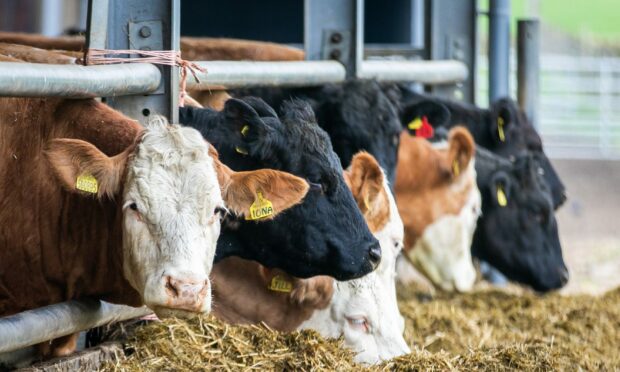The key role which improving animal health and welfare will play in making Scotland’s largely livestock orientated agriculture more sustainable means the country’s vets should have greater input into policy development.
Calling for the profession to have a voice on the Scottish Government’s Agricultural Reform Implementation Oversight Board (ARIOB), national chair of the British Veterinary Association, Malcolm Morley said that any new system which did not have animal health and welfare at its heart would not be sustainable.
“As the country seeks to transition to a low carbon future, the new agricultural policy offers a unique opportunity to build on the positive relationship between all sectors of the livestock industry,” said Mr Morley.
Healthy animals are more efficient
He said that reducing the unnecessary losses associated with disease and poor welfare in livestock would play a major role in cutting emissions from the sector – as healthy, well cared for animals were far more efficient.
Mr Morley also warned MSPs and influencers attending the BVA Scottish branch’s annual dinner held this week in the Scottish Parliament that funding for veterinary education stood on the edge of a precipice.
He said that Scotland’s two veterinary colleges had long been to the forefront of training the profession from around the world – but stated that the funding available for home-grown students currently failed to cover the costs their training.
“And if moves towards securing improvements in funding are not forthcoming the profession faces a bleak long-term future,” he warned.
UK Veterinary Act ‘outdated’
A further plea was issued for a reform of what he termed the UK’s “outdated” Veterinary Act. Having last updated in 1966, Mr Morley said that the legislation was now “well into extra time” and was holding back the development of some areas of the profession.
Midlothian veterinary surgeon Gareth Hateley MA VetMB CertCHP MRCVS, a recognised expert in cattle disease surveillance, was elected President of the British Veterinary Association’s (BVA) Scottish Branch.
The organisation said that Mr Hateley brought to the role almost 40 years of experience from a rich and varied career spanning farm animal practice, veterinary pathology, disease surveillance and veterinary leadership.
A former president of the British Cattle Veterinary Association he has also served on groups such as Ruminant Health and Welfare and he Cattle Health Certification Standards and is currently serving on the board of Livestock Health Scotland.
